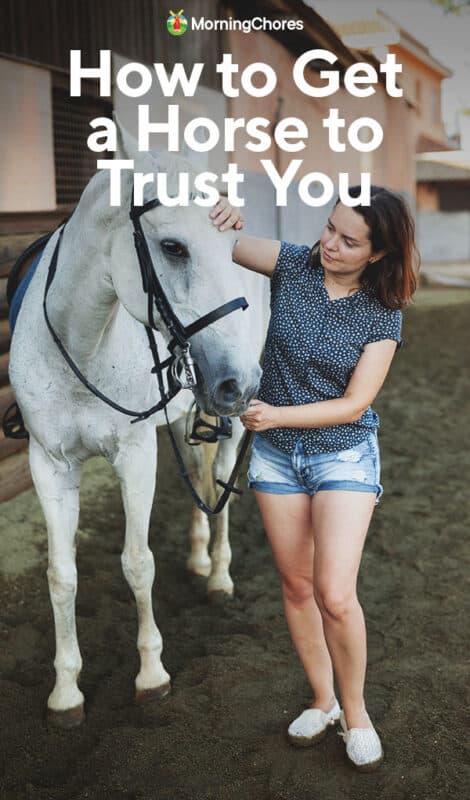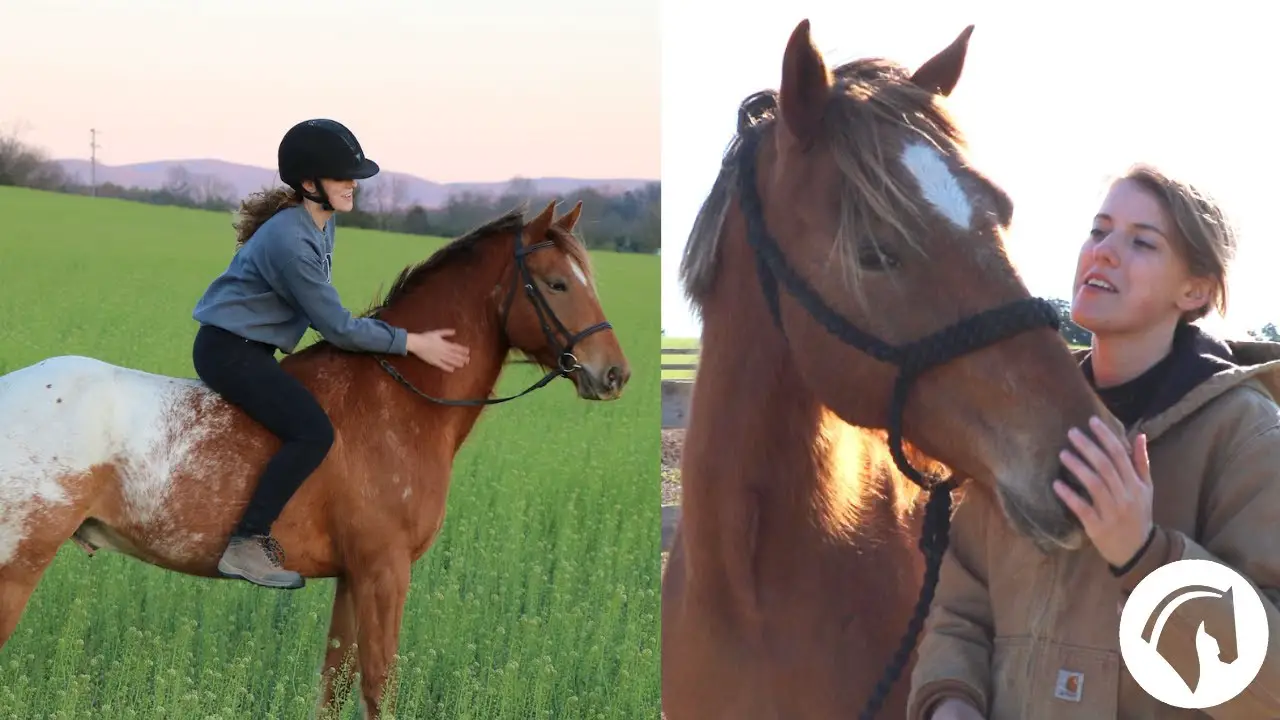To get a horse to trust you, spend time building a bond through consistent care and positive interactions.
Understanding The Nature Of Horses
Instincts and behavior of horses
The nature of horses is deeply rooted in their instincts and behavior. Horses are prey animals, which means they have a heightened sense of awareness and are always on the lookout for potential dangers. They rely on their instincts to survive in the wild, and even when domesticated, these instincts remain deeply ingrained.
In order to build trust with a horse, it is important to recognize and understand their natural instincts. One key instinct is their flight response. Horses are naturally inclined to run away from perceived threats, as it is their primary means of defense. It takes time and patience to help a horse overcome this instinct and feel safe in your presence.
Building trust with a horse involves establishing a sense of leadership, consistency, and respect. Horses are social animals and are more likely to trust and follow a leader who provides clear guidance and protection. Being consistent in your actions, handling, and training methods will help horses feel secure and trust your intentions.
Additionally, positive reinforcement plays a crucial role in building trust with horses. Rewarding desired behavior with treats or praise encourages horses to associate your presence with positive experiences. Developing a bond based on trust and mutual understanding is essential for a successful and fulfilling horse-human relationship.
Creating A Safe Environment
In order to gain a horse’s trust, it is crucial to create a safe environment for them. This starts with establishing a calm and secure atmosphere. Horses are highly sensitive animals, and they rely heavily on their surroundings to feel safe and at ease.
One key aspect of creating a safe environment is designing an appropriate living space for the horse. This includes providing ample space for them to move around comfortably and ensuring that their shelter offers protection from the elements and any potential predators.
Additionally, it is important to maintain a consistent routine and avoid sudden changes that may cause stress or anxiety for the horse. Providing them with a stable and predictable environment will help them feel secure and build trust over time.
It is also essential to practice proper handling techniques and always approach the horse in a calm and gentle manner. Building trust is a gradual process, and it requires patience, consistency, and a genuine desire to create a positive and trusting relationship with the horse.
Gaining Horse’s Confidence
Gaining a horse’s confidence is a crucial step in building a trustworthy relationship. Approaching the horse with patience and respect is key to establishing a solid foundation. Remember to keep a calm and relaxed demeanor, as horses are sensitive to your energy. Avoid sudden movements or loud noises that may startle the horse.
Consistent interaction is essential for building trust. Spend time with the horse regularly, engaging in gentle grooming and groundwork exercises. This helps the horse become familiar with your presence and touch. Use positive reinforcement techniques, such as rewarding the horse with treats or praise when they respond well.
Take the time to observe the horse’s body language and respond accordingly. This will help you understand their feelings and preferences. Building trust takes time, so be patient and understanding. Each horse is different, so adapt your approach to suit their needs and personality.
Creating a bond of trust with a horse is a fulfilling and rewarding experience. It requires consistent efforts, respect, and empathy. By approaching with patience and building a foundation of trust through consistent interaction, you can develop a harmonious relationship with your horse.
Developing A Bond
Developing a bond with a horse requires time, patience, and understanding. Spending quality time with the horse is essential to gain its trust. Establish a regular routine to create a sense of familiarity and predictability for the horse. Spend time grooming the horse to promote relaxation and build a bond. Engaging in groundwork exercises can help establish respect and improve communication. Pay attention to body language and be aware of the horse’s responses. Use calm and assertive energy to convey your intentions and establish yourself as a trustworthy leader. Avoid sudden movements or loud noises that can startle the horse and erode trust. Reward the horse for positive behavior with praise and treats. Building a strong bond with a horse takes time and consistent effort, but the rewards are worth it.
Providing Proper Nutrition And Health Care
Proper nutrition and health care are essential for gaining a horse’s trust. Feeding the horse a balanced diet is the first step in providing good nutrition. A balanced diet should consist of high-quality hay or pasture, along with a concentrate feed that contains essential nutrients such as protein, vitamins, and minerals. Regular veterinary check-ups are also crucial for ensuring the horse’s health. A veterinarian can examine the horse, administer necessary vaccinations, and address any health concerns that may arise. It’s important to follow the veterinarian’s recommended vaccination schedule to protect the horse from contagious diseases. By prioritizing the horse’s nutrition and healthcare, you can establish a strong foundation of trust, as the horse will feel comfortable and well-cared for.

Credit: morningchores.com
Implementing Positive Reinforcement Training
Implementing positive reinforcement training is a crucial step in gaining a horse’s trust. By using reward-based techniques, you can create a positive association with desired behaviors, encouraging the horse to repeat them. Setting clear boundaries and expectations is essential during this process. Consistency is key, as the horse will learn to trust you when they understand what is expected of them. Start by identifying behaviors you want to reinforce, such as standing still or responding to cues. Reward the horse immediately after they perform the desired behavior, using treats or praise. This positive reinforcement will strengthen the bond between you and the horse, creating a foundation built on trust and respect.
Building Trust During Handling And Grooming
Gaining a horse’s trust is essential for a healthy and successful relationship. One effective way to build trust is through gentle handling techniques during grooming sessions.
Regular grooming not only helps maintain the horse’s coat and overall health, but it also provides an opportunity for bonding and trust-building. Start by approaching the horse calmly and confidently, using slow and deliberate movements. Avoid sudden movements or loud noises that may startle the horse.
When grooming, use gentle strokes and consider the horse’s preferences. Some horses may enjoy a firm brush, while others may prefer a softer touch. Take the time to observe the horse’s reactions and tailor your grooming approach accordingly. This shows the horse that you respect its boundaries and care for its comfort.
Additionally, establishing a routine with consistent grooming sessions can help to reinforce trust. Horses thrive on predictability and routine, so establishing regular grooming sessions helps them feel secure.
Addressing Fear And Anxiety
Addressing Fear and Anxiety:
When working with horses, it is essential to address any fear and anxiety they may have. Identifying the horse’s triggers is the first step in helping them overcome their fears. Observe the horse closely to understand what situations or objects make them feel uncomfortable. It could be loud noises, sudden movements, or certain equipment.
Gradual desensitization and counter-conditioning:
Once the triggers are identified, a gradual desensitization and counter-conditioning approach can be used to help the horse build trust. Gradual desensitization involves exposing the horse to their triggers in a controlled and gradual manner, allowing them to become more comfortable over time. Counter-conditioning involves pairing the trigger with something positive, such as treats or praise, to create a positive association.
This process should be done patiently and consistently, always considering the horse’s comfort level. By addressing fear and anxiety through gradual desensitization and counter-conditioning, you can help your horse build trust and develop a stronger bond with them.
Resolving Past Traumas
Understanding the horse’s history is essential when it comes to resolving past traumas. Horses that have been abused or neglected often have deep emotional scars that affect their ability to trust humans. By taking the time to learn about their past experiences, we can begin to understand why they may be fearful or untrusting. When working with these horses, it is important to approach them with patience and empathy, recognizing that they have been through difficult situations.
Rehabilitation techniques for abused or neglected horses focus on creating a calm and secure environment. Building trust is a gradual process that involves engaging in activities that the horse enjoys, such as grooming or hand feeding. Positive reinforcement is key to gaining their trust, using treats or praise to reward good behavior. It is important to remember that every horse is different and will respond to different techniques, so it is crucial to be flexible and adapt to their individual needs.
Developing a bond with an abused or neglected horse takes time and effort, but the rewards are immeasurable. Through understanding their history and using effective rehabilitation techniques, we can help these horses heal and learn to trust again.
Seeking Professional Help
Seeking Professional Help: Consulting with a qualified horse trainer or behaviorist can be a valuable step in building trust with your horse. These professionals have extensive knowledge and experience in working with horses and can provide personalized guidance and support. They can assess your horse’s behavior and temperament, identify any underlying issues, and develop a tailored training plan. Learning from experienced horse owners and professionals is another effective way to gain insights and strategies for building trust. Engaging in discussions, forums, or workshops with like-minded individuals can provide valuable tips and advice. Surrounding yourself with a community of knowledgeable horse enthusiasts can be a great resource for fostering trust and understanding between you and your horse.
Frequently Asked Questions For How To Get A Horse To Trust You
How Can I Earn A Horse’s Trust?
Earning a horse’s trust takes time and patience. Start by spending time with the horse, grooming and feeding it regularly. Approach calmly and avoid sudden movements. Build a consistent routine and establish clear boundaries. Gradually introduce new experiences to build trust and confidence.
Why Is Trust Important In Horse-human Relationship?
Trust is vital in a horse-human relationship as it forms the foundation for successful training, bonding, and communication. When a horse trusts you, it is more likely to cooperate, feel safe in your presence, and be receptive to your cues.
Trust allows for a harmonious and respectful partnership.
How Do I Establish A Bond With My Horse?
To establish a bond with your horse, spend quality time together, engaging in activities such as grooming, groundwork, and riding. Develop a consistent routine, be patient and gentle, and listen to your horse’s signals. Building trust, respect, and understanding will strengthen your bond over time.
How Can I Gain A Horse’s Respect?
Gaining a horse’s respect involves establishing yourself as a confident and consistent leader. Set clear boundaries and enforce them consistently. Use gentle yet firm cues, maintaining good body language and clear communication. Create a balance between respect and trust, ensuring a respectful and cooperative relationship.
Conclusion
Gaining a horse’s trust is a rewarding journey that requires time, patience, and understanding. By focusing on building a strong foundation, establishing clear communication, and consistently demonstrating kindness and respect, you can earn a horse’s trust and strengthen your bond.
Remember, each horse is unique, so take the time to listen and adapt your approach accordingly. With consistent effort, you’ll soon find yourself building a deep and meaningful connection with your equine partner. Happy trails!

